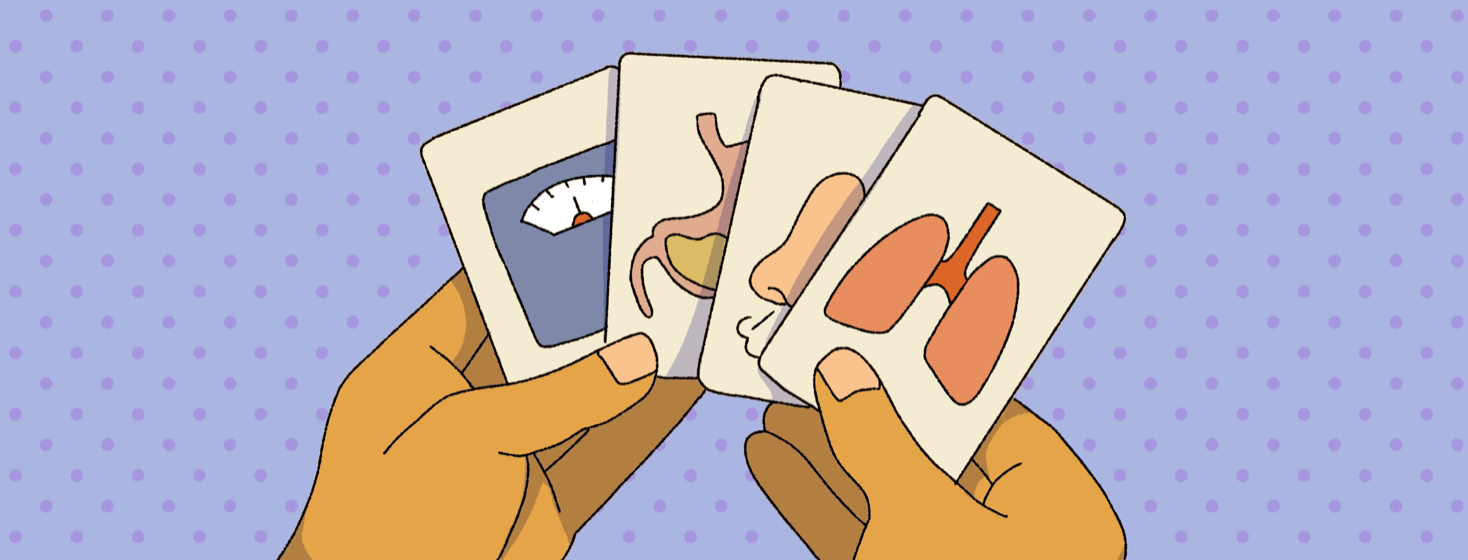COPD Comorbidities
You have likely heard me say before that we are unique in our own diseases because we have other health conditions, medications, etc. These other health issues are called comorbidities. This is having two or more chronic diseases in a patient.
Common COPD comorbidities
Anemia:
This is a deficiency in the number of red blood cells, which carry oxygen throughout the body. It also makes it more difficult to expel carbon dioxide. A person might feel dizzy, weak, and/or tired. You might have headaches, confusion or lack of appetite. You may hear that you are lacking iron.
Anorexia
You don’t often hear anorexia as a side effect of COPD. It’s usually referred to as weight loss. For many COPDers, especially in the later stages of COPD, they have difficulty gaining or maintaining their weight. As the COPDer struggles more to breathe, he/she burns calories. It’s difficult to eat a full meal, because of a decreased appetite and a reduced stomach.
Asthma
According to the American Lung Association, asthma is the leading chronic childhood disease. Whereas, COPD is the leading chronic adult disease. Also, the third leading cause of death and the second leading cause of disability. Studies show a direct correlation between the severity of asthma and the incidence of COPD. COPD must be treated, as must asthma.1
Congestive Heart Failure
Often seen in the late stage of COPD when there are lower oxygen levels, congestive heart failure is only seen then when further testing and diagnosis made. COPD and CHF have similar symptoms. Pulmonary Hypertension affects 10% or so. Those with heart failure can live a long life, whereas for some it’s limited. It’s so important that anyone who smokes stops.
Depression and/or Anxiety
As with any chronic illness, depression and anxiety often go hand in hand. People suffering from chronic illness do not get a break from it, and they often struggle to try to do a task or to be able to breathe, as in COPD. In later stages, this is seen more often. Panic attacks happen as well. The medications too can cause depression.
Dementia
This might be seen early on as confusion. Causes are lack of O2 (oxygen) and high CO2 (carbon dioxide). This might also be caused by damaged blood vessels in the brain.
Diabetes
COPDers have asked me if their COPD caused their diabetes, and others have asked if diabetes caused their COPD. Higher dosages of corticosteroids can increase the blood sugar levels in the body and that increase in blood sugar can cause diabetes. Undiagnosed and/or uncontrolled diabetes can reduce lung function. Both chronic illnesses must be treated.
GERD or Reflux
People with GERD or reflux often have acid coming from their stomachs, which affects their COPD. This acid can cause coughing, belching, and chest pain, which comes from this heartburn, called GERD. This can make it more difficult to feel like a person can get air and breathe.
Lung Cancer
Cigarettes are the primary cause of COPD, as well as lung cancer. Often it seems that chronic inflammation of the lung is first diagnosed, then diagnosis of COPD or of cancer is made. It makes sense then, that the chronic condition of lung cancer is a comorbidity of COPD.
Osteoporosis
This is caused by decreased vitamin D, malnutrition, steroids and smoking. There is a thinning, weakening of bones. Coughing can cause ribs to break. Falls and bumps can cause breaks as well. It’s important to follow treatment early for this. You may be put on vitamin D before you have deficiencies and that is good.
Pulmonary Hypertension (PHT)
Pulmonary hypertension is high blood pressure that sends oxygenated blood to the heart and oxygen-depleted blood to the pulmonary arteries and back to the lungs to be oxygenated. PHT can be the primary and COPD the secondary or vice versa.
Sleep Apnea
Sleep Apnea and COPD both cause heart problems. When sleeping, apnea can cause the tongue to slide back and block the throat/airway. This can contribute to CO2, carbon dioxide, which affects COPD and the ability to breathe oxygen.
You might be able to think of additional comorbidities. You might also be aware of how any or all that affect you.

Join the conversation